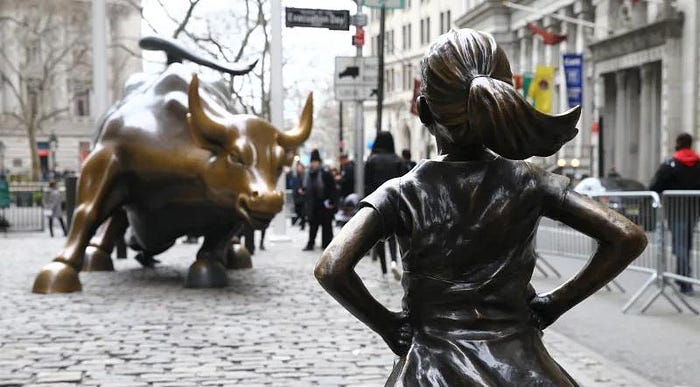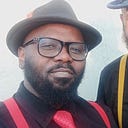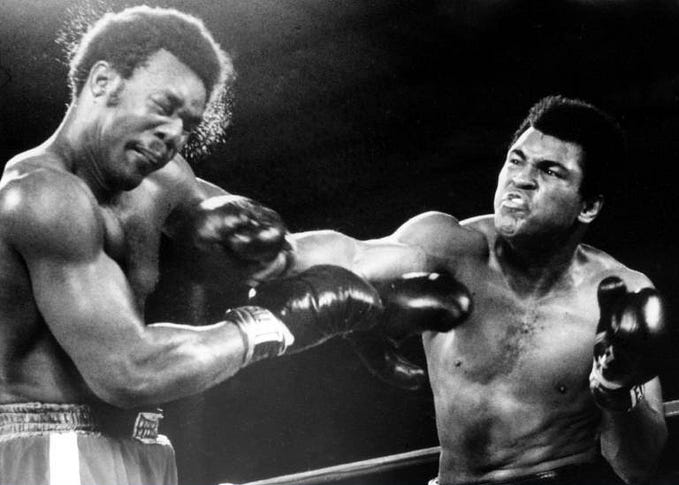The Hunger Of First Generation Immigrants

Everybody laughed. Accept the millionaire.
Success is the only option for first generation immigrants because they know what lies on the other side of it.
A frequent trend among them and which can almost be said to be a rule, is starting work at an early age. Had it not been for their early work and exposure to certain skills and talents, they would not have reached the pinnacle of success that they reached.
Mozart, for instance, began studying piano at four. When he was six he could already play fluently and by the time he was nine, he was writing symphonies, of which the most famous is Symphony-in-G-major. Its third movement opens with one of the most difficult keyboard strokes ever recorded. “The keys seem to fling themselves at the player,” said one artist, and although almost no one has played this exact rendition since his time, we can find any number of exuberant pianists thrilling up and down the keyboard in a good attempt to reproduce it.
In sports, people who began competing at an early age, whose parents showed an early interest in them — and invested resources to help them along — were deemed “gifted” by others as they got older. Tiger Woods was a golfer from age two. Serena Williams picked up her first tennis racket at the age of four. Simone Biles was six when she started gymnastics. Phelps was seven when he started swimming, and Cristiano Ronaldo, Leo Messi and Roger Federer were eight when they started playing football for minor leagues.
The repeating theme is that early exposure to anything is essential to long term success, like Malcom Gladwell’s ten thousand hours, it takes many years of practice to get good at a thing. The path to mastery requires repeat exposure and is the reason why nine out of ten billionaires started working before the age of eighteen.
Early exposure to work signals the transition from school life to practical life, which is an indispensable tool in business when cultivated early.
The industrious Sir Richard Branson was one such starter, founding Student Magazine when he was in his early teens. So was Musk, Gates and Zuckerberg who began programming at around that age.
Warren Buffet, was an industrious young man; as a boy he worked at his grandfather’s store and also delivered newspapers, the money he made from that he invested in golf balls and stamps, earning a small fortune, which moved him to buy a pinball machine business, which was very lucrative for the teenager, so that by the age of fifteen he had saved the modern equivalent of twenty-five thousand dollars.
Chip Wilson, the indomitable Canadian billionaire and founder of multiple successful retail apparel companies, was not your typical teenager. While most kids his age were enjoying their summer holidays, he was already knee-deep in the world of work. At the tender age of just fourteen, he was already earning his keep by working on barn houses for a meager wage of five dollars a day. But that was just the beginning for the young Wilson. When he wasn’t hammering nails and sawing wood on the construction site, he was prowling the local neighborhoods with an axe in hand, felling trees and clearing land, if that wasn’t enough to tire out the average teenager, he would spend his evenings washing cars in parking lots, honing in the dogged determination to win that would later make him a titan of industry. He went on to become one of the most successful entrepreneurs of his generation. For him, hard work wasn’t just a means to an end, but a way of life.
Ron Sim, the Singaporean business tycoon and founder of Osim, attributes his drive and determination to succeed to his impoverished upbringing, saying that he feels lucky to have been born poor, because that fueled his hunger for massive success later in life.
Growing up in a cramped one-bedroom flat with his parents, grandparents, and six siblings, Sim saw his difficult circumstances as an opportunity to develop an entrepreneurial spirit. “We all lived together,” he recounts, “seven kids, parents, and grandparents. Thirteen people living in a one bedroom flat. We all slept on the floor.”
At the age of nine, he began working after school selling noodles to help his family make ends meet. This taught him the value of hard work and perseverance. He saved every penny he earned and worked tirelessly to expand his customer base. These early experiences taught him the importance of resourcefulness and seizing every opportunity that comes your way.
Jack Cowin from Australia began his journey at just twelve years old, working tirelessly in both the summer and winter months to earn enough money to buy a paper route. Meanwhile, Michael Bloomberg and Sergey Galitskiy were also driven and determined from an early age, constantly seeking out odd jobs and spending their weekends working hard.
From shoveling snow to delivering newspapers, these billionaires all started early. Despite the grueling hours and physical labor involved in their early jobs, they credit these experiences with teaching them the values of hard work, dedication, and perseverance, and the lesson that winning doesn’t come easy but takes hard work and sacrifice.
For Galitskiy, those long weekend sessions spent working in the family garage may have been a far cry from the fun and games of his childhood friends, but they instilled in him the discipline and focus that have helped him build a successful business empire later In life. And for Cowin, the experience of running his own paper route gave him a taste of entrepreneurship that he would carry with him throughout his life.
Venture capitalist Tim Draper’s recalls doing a variety of physical labor jobs such as weeding, shoveling dirt, and painting. However, it wasn’t just manual labor that was a part of his upbringing, but also smart financial practices. His father taught him the value of investing, and Draper bought his first share of a stock at the age of nine using money he had earned himself. This early exposure to the world of finance and investing would later become a key factor in his successful career as a venture capitalist.
Similarly, Canadian billionaire Frank Hasenfratz was no stranger to hard work. He recalls the responsibility of feeding chickens from the age of age six, and the expectation that he and his siblings had to earn their playtime by first completing their chores and contributing to the family’s well-being. Despite the hard work, Hasenfratz recognizes the value of his upbringing, saying that you had to work. That’s the way it was. These early lessons in discipline and hard work would later become critical pillars in his journey to becoming a billionaire.
Early lessons of hard work and sacrifice pave the way for future success. This was the case for Harland Sanders, the founder of Kentucky Fried Chicken, who was forced to grow up quickly due to his family’s difficult circumstances. At the age of six, he took on the responsibility of cooking for his younger siblings while his mother worked to support the family. With limited resources, young Harland became a master of vegetable soup, which became a daily staple for him and his siblings.
Despite facing numerous setbacks in his career, Harland remained determined to achieve financial success. He worked tirelessly, switching from career to career in search of a breakthrough. But it wasn’t until his sixties that he found his true calling: selling his now-famous “Kentucky Fried Chicken”.
While most people his age were looking forward to retirement, he was out on the road, traveling across states and sleeping in his car, all in pursuit of winning. He refused to let old age or any other obstacle stand in his way. His hard work and perseverance paid off, and today Kentucky Fried Chicken is one of the world’s most popular fast-food chains, with close to thirty thousand restaurants in almost every country on the globe.
Ray Kroc was also no stranger to hard work. As a young boy, he worked odd jobs to help support his family, including selling magazines, playing the piano at a local bar, and playing the French horn in a band. After serving as a Red Cross ambulance driver during World War I, Kroc worked as a milkshake machine salesman and eventually became the exclusive distributor of a machine called the Multimixer.
It was during his time as a distributor that Kroc stumbled upon a small hamburger restaurant in San Bernardino, California called McDonald’s. Impressed by the efficiency and quality of the operation, Kroc convinced the owners, the McDonald brothers, to let him franchise the concept.
But Kroc faced numerous obstacles in his quest to build a McDonald’s empire. He struggled to convince investors and bankers to back him, faced resistance from franchisees who wanted to deviate from the strict standards set by the McDonald’s brand, and even had to fight a legal battle against the McDonald brothers themselves.
Despite these challenges, Kroc remained relentless in his pursuit of success. He worked tirelessly, often putting in 15–18-hour days and sleeping in his car when he was on the road. He knew that success required unwavering dedication, and he constantly sought out ways to motivate himself and stay focused. One of his tactics was playing motivational tapes during his long drives, filling his mind with positive affirmations and self-belief.
He poured his heart and soul into the business, developing innovative marketing strategies and expanding the franchise network across the country. Under his leadership, McDonald’s grew into a global fast food giant, with thousands of locations and billions of dollars in annual revenue.
Kroc’s story is a testament to the power of hard work, determination, and persistence. Even in the face of seemingly insurmountable obstacles, he never gave up on his dreams and ultimately achieved incredible success.
The dark lonely hours that men of purpose have to endure in their steady climb to success is truly remarkable. They may lack in other things, have many weaknesses and eccentricities, but the quality of persistence is never absent in them. In times when self-doubt and insecurities plague their minds, and their willpower is challenged daily, they push onwards, no matter what opposition they meet or what discouragement overtakes them.
It was a famous saying of Longfellow that “If you only knock long enough and loud enough at the gate, you are bound to wake somebody up.”
Perseverance is one of the greatest elements of winning, as can be seen in the story of filmmaker Tyler Perry who slept in his car and was homeless for six years while writing his musicals, the car he had was a Geo Metro, a tiny car compared to his 6”5 frame.
Musician Ed Sheeran was also not exempt from hardship and sacrifices to make it in the music industry, often sleeping in the London Underground train stations or next to heating vents to keep warm during his come-up years.
Elon Musk slept on a stiff couch in his office during Tesla’s dark days. His office was near an assembly line, surrounded by the sound of banging metal. Thomas Edison too, slept in his office many nights after spending the bulk of the night pouring over some invention or device. He then made the floor his bed and his coat his pillow, getting a little rest before resuming his work before day-break, driven by his vision to change the world.
Hyperachievers are not repulsed by drudgery, nor are they deterred by obstacles or tired by hard work. Even their sorrows and failures do not demoralize them. They are unshakable in their determination and nothing can sway them from their purpose. It is not only their brilliance or resourcefulness that makes them great, but their unwavering commitment and persistence in their efforts. They persevere relentlessly, understanding that it is not their innate genius but their resolute and persistent efforts that lead to the achievement of anything of value, and that failure is not defeat, but rather an opportunity to learn and grow.
For these stories and more, check out my book on Amazon — Trials And Triumphs of Hyperachievers








